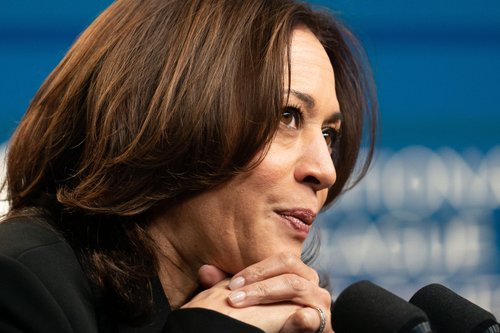Career coaches are wondering: "Where are all the men?"
20 août 2024
5min

Although career coaching is for everyone, it is undoubtedly a gendered issue. According to numerous studies, women are more likely than men to want coaching and more likely to see its benefits personally and collectively, both for themselves and for their company. However, women are also less likely to be offered it by their employers.
“For a long time, I had preconceived ideas about coaching. I thought I was above it all. I believed I needed to always come up with my own solutions,” says Arnold,* 34, who until last year worked in marketing at a major online services company. He recalls the day things finally clicked. “The situation at work was a nightmare, I had no guidance to help me. My partner strongly advised me to see a coach, so I ended up going to one.”
So, are men less likely to reach out to a career coach over the course of their working lives? Some people believe this to be the case, such as professional career coach Valerie Peltier. The data that came out of her firm was unequivocal: 80% of her clients were women. This prompted her to ask, “Where are all the men?”
According to a 2022 study by the International Coaching Federation (ICF), the gender gap is smaller than the one seen at Peltier’s firm. However, it does confirm a certain global trend: 58% of coaching clients are women, while just 42% are men. And, according to another ICF study, 72% of the world’s coaches are also women. So, are women more drawn to getting career help than men? Analyzing this issue is somewhat more complex.
Men are “naturally” more likely to be offered coaching
Peltier makes the distinction between “company coaching” and “private coaching.” It’s the latter that clients seek of their own accord and not through their employer, and that’s where she sees the biggest difference. “I’d say that nearly 90-95% of women come to me as a solo initiative outside of their work. It’s very rare for men to come and see me privately.” She believes this difference is down to culture. “We still live in a highly patriarchal society, where the man’s role is often seen as being strong. Letting yourself be coached can be seen as a weakness.”
Career coach and occupational psychologist Noemie Le Menn also speaks of a similar situation for her. When it comes to private coaching, most of her clients are also women. “Often, the reasons for women wanting coaching are directly linked to their position, working conditions, and ultimately the needs of the company. They could therefore ask their company to pay for their sessions, but they often don’t dare,” explains Le Menn, highlighting the paradoxical nature of the situation. “Women seek coaching to overcome the difficulties they face due to the fear of dealing with hierarchy and conflict. But as they fear confrontation, they don’t dare ask for support.”
Deloitte’s 2024 Women @ Work Survey found that nearly half (43%) of women experience non-inclusive behaviors in the workplace, ranging from microaggressions to sexual harassment, which leave many feeling unsupported by their employers. It’s no surprise then that women prefer to seek career help on their own terms.
“We still live in a highly patriarchal society, where the man’s role is often seen as being strong. Letting yourself be coached can be seen as a weakness.”
It’s also not shocking that, when it comes to coaching provided by companies, most of Le Menn’s clients are men. “When you look at organizational charts, you see there are more male executives and senior managers. Companies tend to invest in coaching for strategic positions and key posts. It’s therefore mostly men who get offered coaching,” she says. According to a 2021 study from BetterUp, 22% of surveyed male employees had been offered coaching compared to just 16% of women.
Erin Eatough, occupational health psychologist and professor at the City University of New York (CUNY), agrees that men “naturally” get offered coaching more than their female counterparts—even when it comes to the same position. “On a subconscious level, we still think of men as more likely to hold a leadership position either now or in the future because this has long been the case. Companies therefore offer men more coaching, without even realizing!”
The glass ceiling at work
The BetterUp study found women more eager to benefit from coaching and willing to dedicate more time to it than men. They also found that women have a better understanding and vision of “how they would use a coach if they had access to one.”
For Eatough, if women are more enthusiastic about coaching, it’s because they know they’ll encounter more obstacles over their careers. The notorious glass ceiling is far from being shattered, with US women still only earning 84 cents for every dollar men make in full-time, year-round positions. “Women tend to have to actively think much more about how they present themselves, what skills they have, how they’re going to talk about themselves and promote themselves,” she explains.
“On a subconscious level, we still think of men as more likely to hold a leadership position either now or in the future because this has long been the case. Companies therefore offer men more coaching, without even realizing!”
Female interest in coaching is also reflected in a 2020 ICF study, which found that 68% of female managers have turned to coaching practices when managing, compared to just 32% of male managers.
Towards more inclusive coaching?
For Eatough, the benefits of coaching are clear-cut. “It’s a privilege to have someone who’s completely committed to your interests and looking out for you,” she says. Arnold, the initially-skeptical marketer, is now a firm believer in these benefits. So much so that after just a few sessions offered by his company, he decided to continue on his own, hiring a private coach.
“It’s been extremely beneficial. Having someone external and completely neutral, who can provide advice based on what they’re observing, was invaluable. In fact, I’ve even recommended coaching to a colleague,” he says. Eatough sees this as a virtuous circle, insisting that “the impact that coaching can have is long-lasting and also influences everyone around you and the team you lead.”
Eve Loyola Courgeon, coach and member of ICF, also speaks of the importance of coaching for teams. “After 8 or 10 coaching sessions, you learn to communicate with others, to adapt your communication in line with a team that may have a different culture, for example.”
Courgeon says it’s time to help more men voluntarily turn towards coaching. She believes that changing the way we talk about it by better explaining what coaching is could be a good first step to destigmatizing it. She says that putting an emphasis on mental health is just one communication strategy. “Burnout affects both men and women. Coaching teaches you how to look after yourself and others. If we convey this idea, it will encourage more men to turn to coaching on their own.”
Peltier sees another argument for helping to get men on board. “The role of a coach is to help the person become autonomous and come up with their own solutions. If men understood that coaching is about them finding their own solutions, and not just about taking advice from a ‘superior,’ this would affect their egos less and give them a sense of power,” she explains.
“Coaching teaches you how to look after yourself and others. If we convey this idea, it will encourage more men to turn to coaching on their own.”
As for women, expectations are high. It’s about time we reduced the gender gap. This means offering women coaching just as much as men, and also making coaching sessions less sexist. In a survey, Le Menn found that 92% of coaches expressed at least one sexist belief in their questionnaires (e.g. a woman, “by nature,” has less authority and leadership than a man).
“If we want women to be coached as well as men, coaches need to absolutely address gender stereotypes and sexism,” she concludes.
*Names have been changed.
Photo by Thomas Decamps for Welcome to the Jungle
Follow Welcome to the Jungle on Facebook, LinkedIn, and Instagram and subscribe to our newsletter to get our latest articles every week!

Inspirez-vous davantage sur : Inclusion : minorités et féminisme

What Kamala Harris’s legacy means for the future of female leadership
The US presidential elections may not have yielded triumph, but can we still count a victory for women in leadership?
06 nov. 2024

Leadership skills: Showing confidence at work without being labeled as arrogant
While confidence is crucial, women are frequently criticized for it, often being labeled as arrogant when they display assertiveness.
22 oct. 2024

Pathways to success: Career resources for Indigenous job hunters
Your culture is your strength! Learn how to leverage your identity to stand out in the job market, while also building a career
14 oct. 2024

Age does matter, at work and in the White House
What we've learned from the 2024 presidential elections about aging at work.
09 sept. 2024

Crafting your personal brand during a name change
A name change can redefine your personal brand. So, how can you leverage your online presence?
04 sept. 2024
La newsletter qui fait le taf
Envie de ne louper aucun de nos articles ? Une fois par semaine, des histoires, des jobs et des conseils dans votre boite mail.

Vous êtes à la recherche d’une nouvelle opportunité ?
Plus de 200 000 candidats ont trouvé un emploi sur Welcome to the Jungle.
Explorer les jobs
